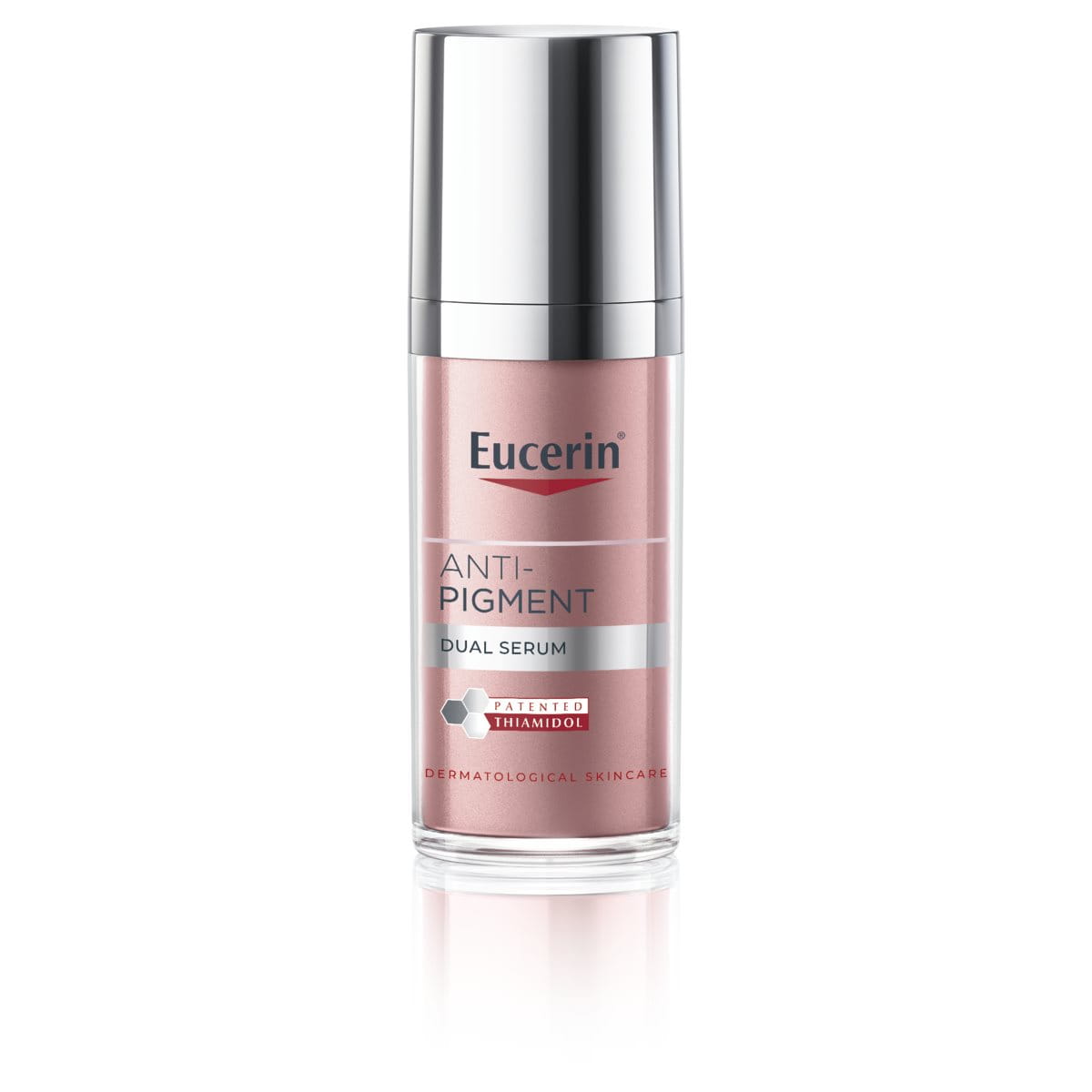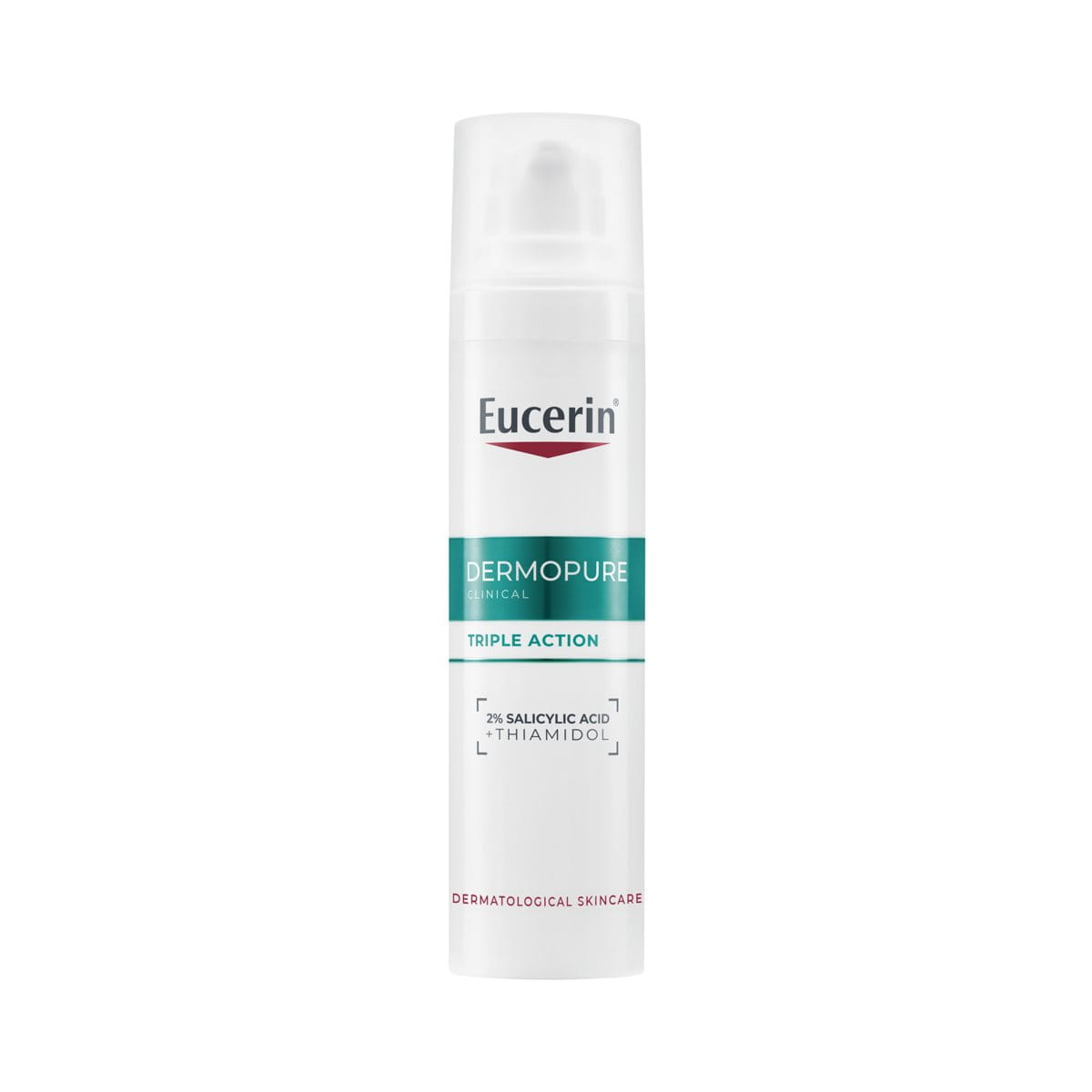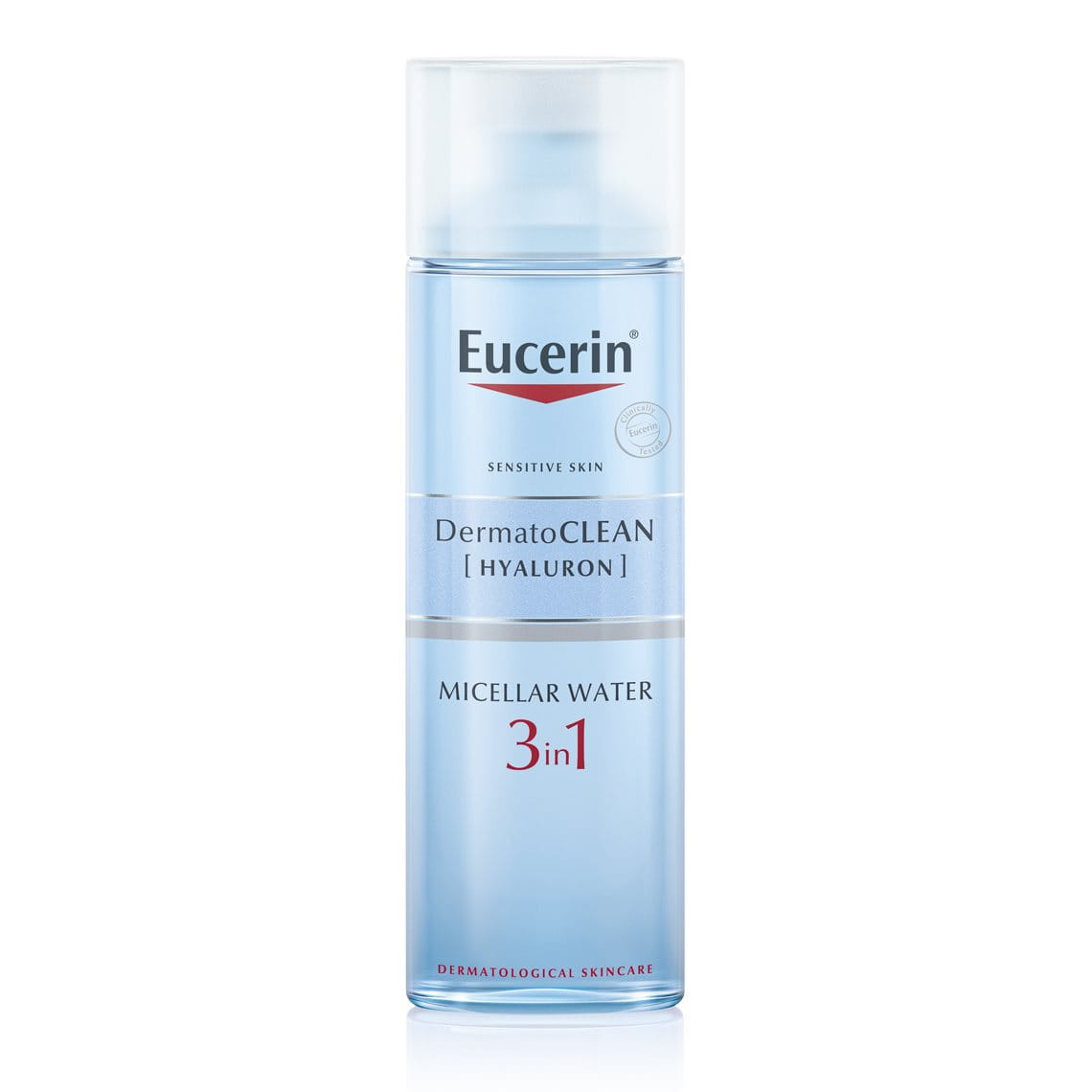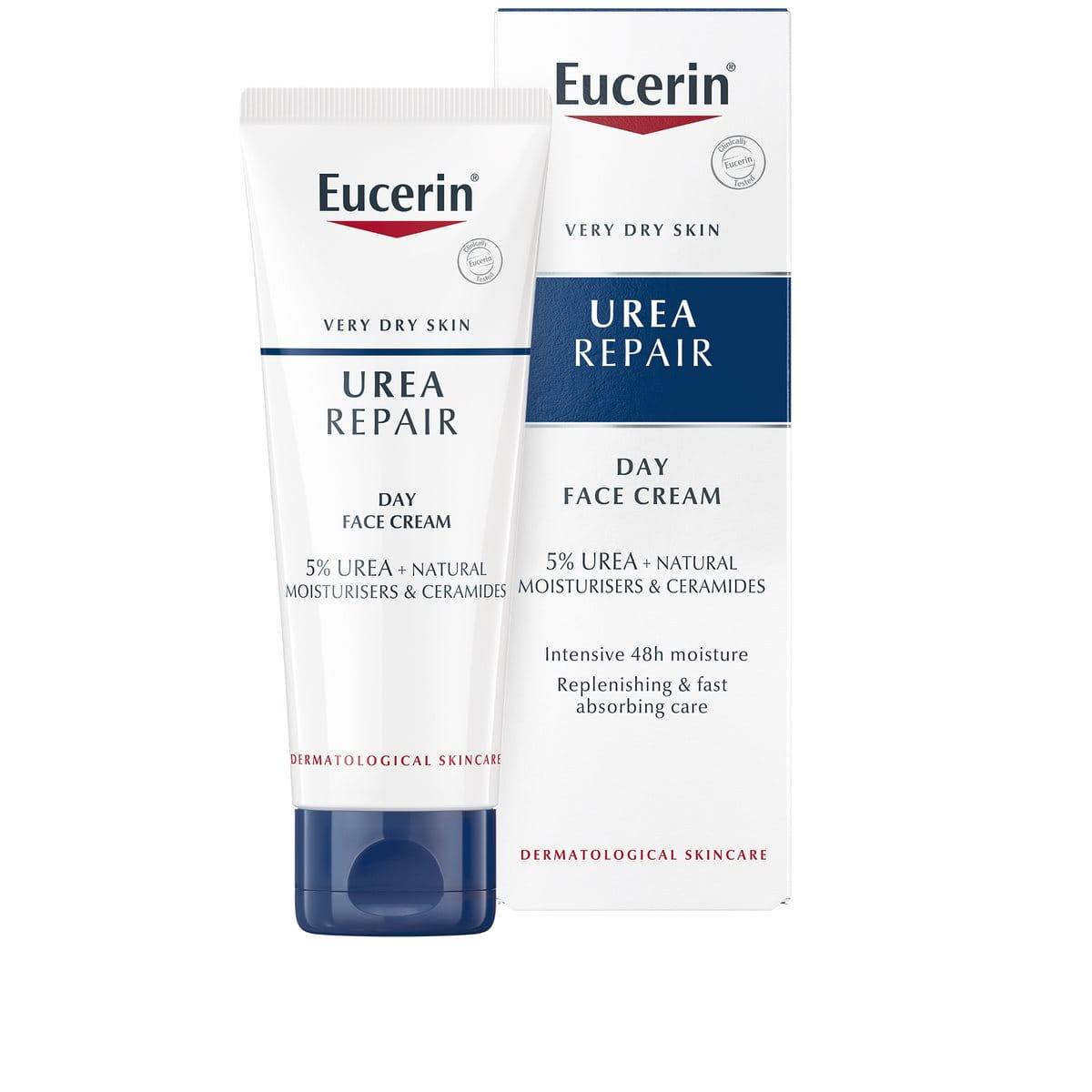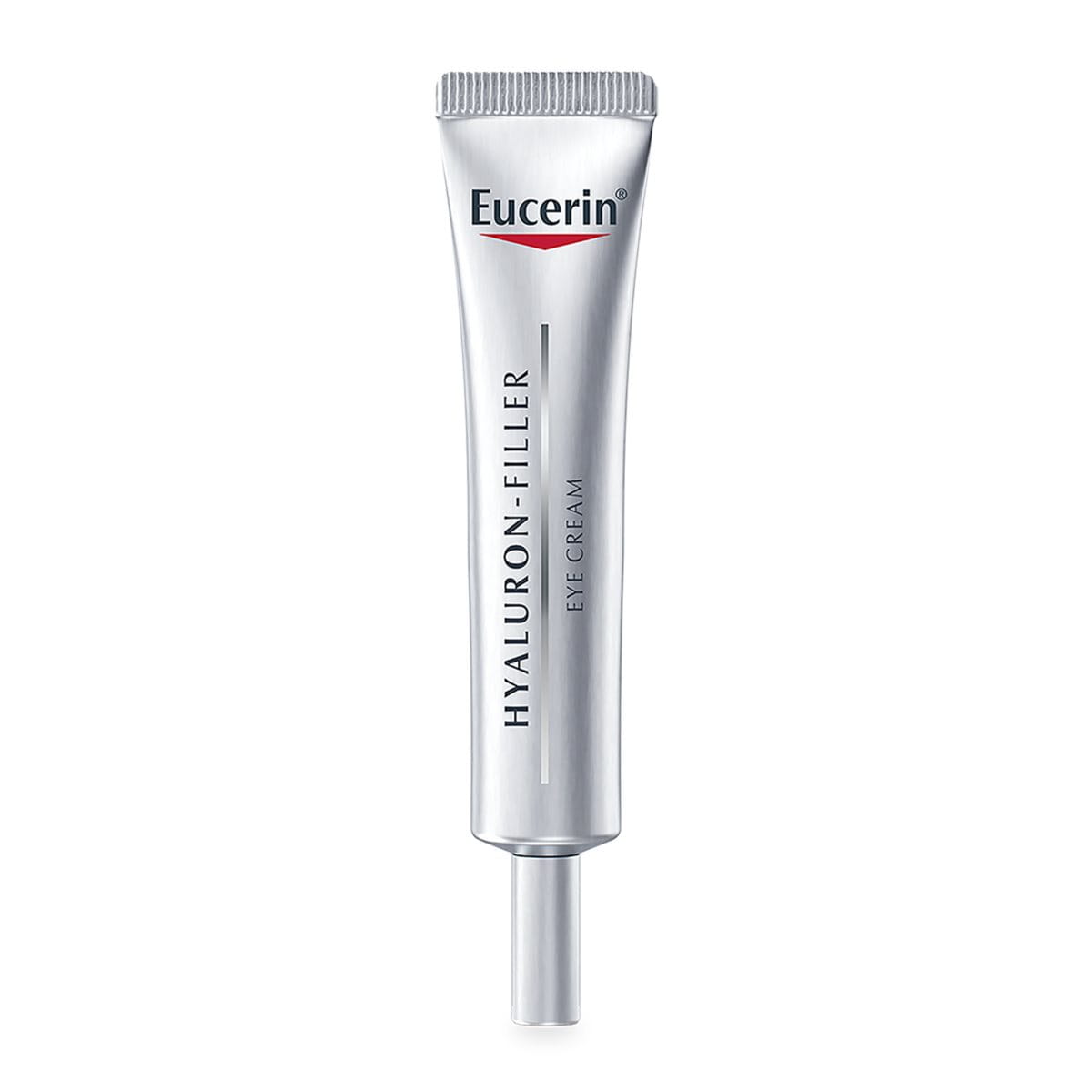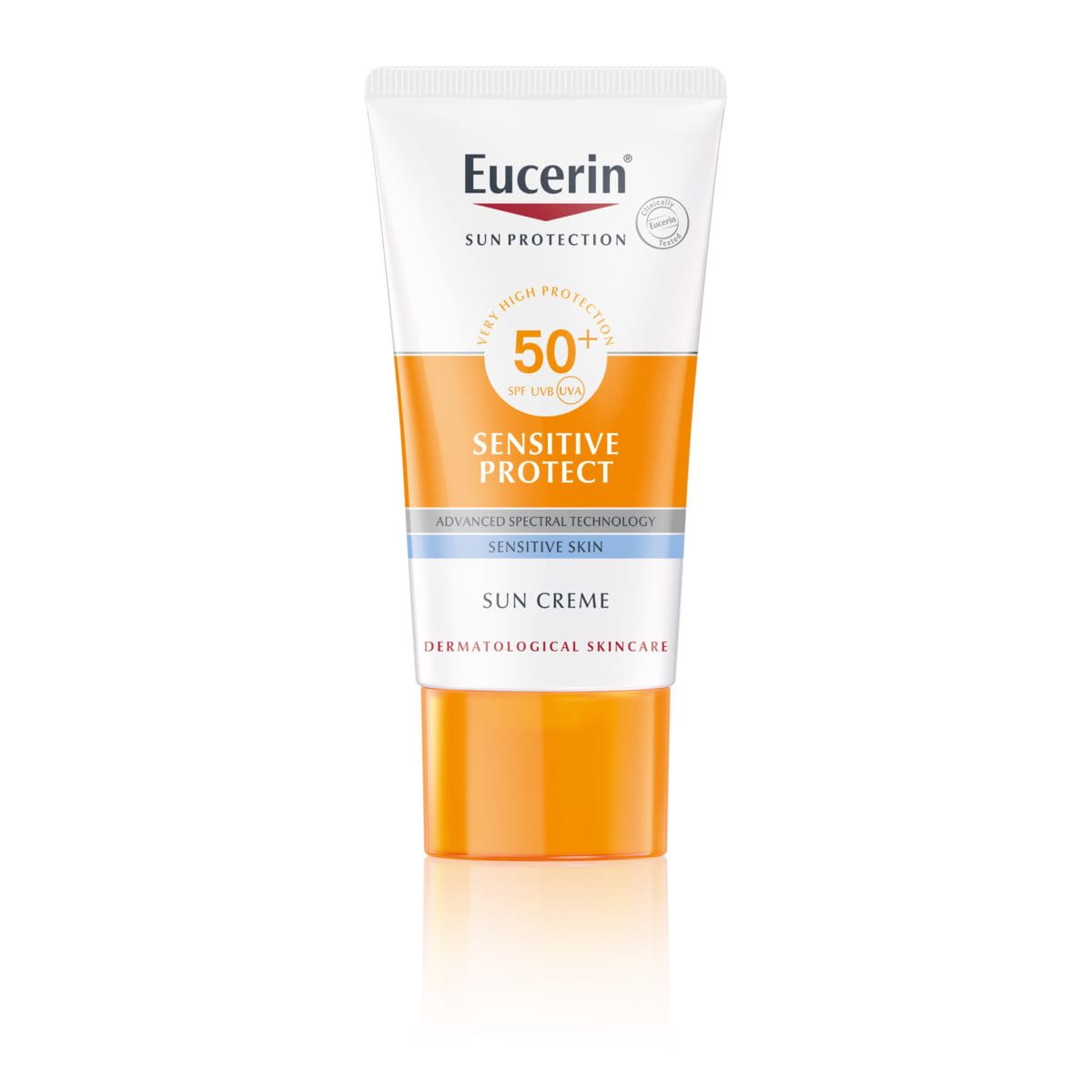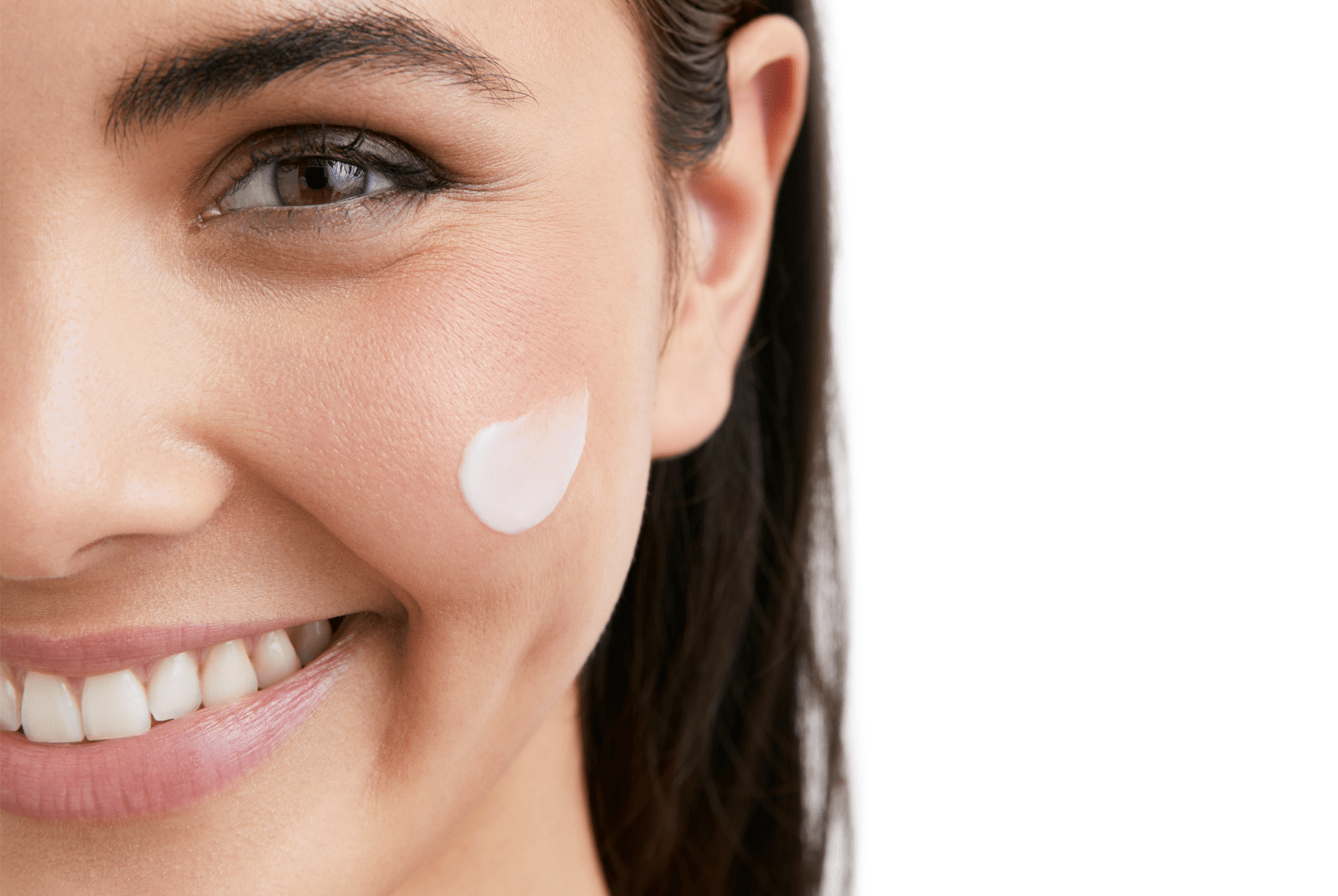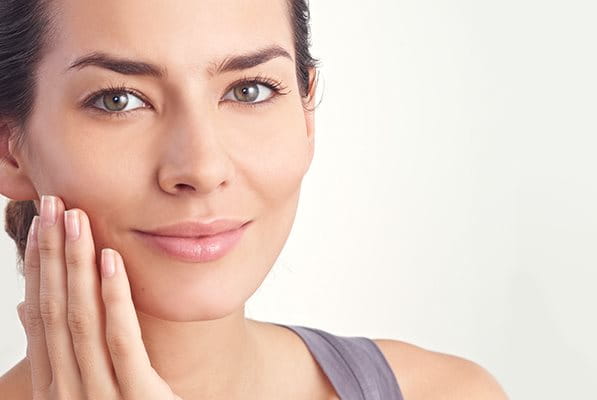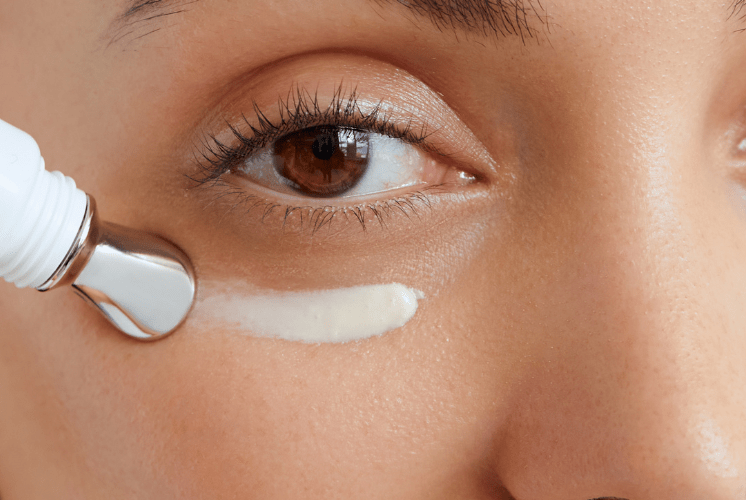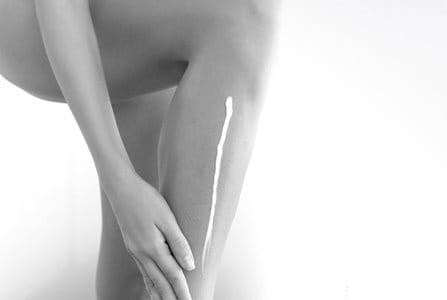Dry skin around eyes is a common issue that many people experience at some point. This skin in the eyes area is thinner and more delicate than other parts of the face, making it more prone to dryness, irritation, and sensitivity. Factors like environmental exposure, allergies, or skin conditions can contribute to dry skin around the eyes, leading to discomfort and visible symptoms such as redness, flaking, and itchiness. Understanding the causes and symptoms can help you find effective ways to soothe and protect this area of sensitive skin.
Symptoms of dry skin around the eyes
Dry skin can cause a range of symptoms that affect both how your skin looks and feels. These symptoms can vary in severity, from mild dryness to more uncomfortable conditions that may require treatment. Understanding these common signs can help you identify and manage dry skin effectively.
Mild dry skin around the eyes
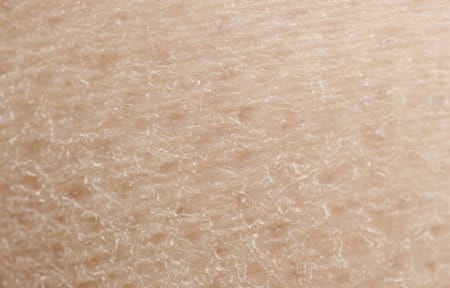
Mild dry skin around the eyes may not be noticeable at first. Typical symptoms include:
- Patches of scaly skin as it becomes dehydrated
- Rough skin, feeling tighter than normal
- Flaky and itchy skin, with mild irritation
- Redness
Severe dry skin around the eyes
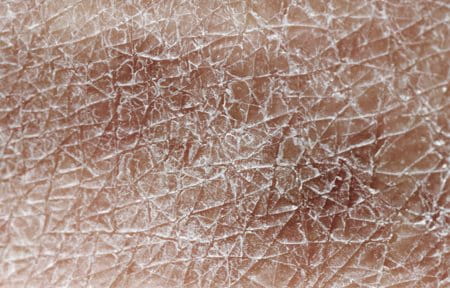
If left untreated or if any dry skin treatment used is ineffective, mild dry skin on the eyelids and under the eyes will become more severe, developing into extremely dry skin with the following symptoms:
- Skin may be red, sore and damaged
- Area around the eyes is more prone to irritation and may be very itchy
- Stinging or burning
- Peeling
- Swelling
- Cracked skin, which can be vulnerable to bacteria and infections
Chronic dry skin around the eyes can reduce elasticity, leading to premature wrinkles.
Eyelid dermatitis
If the skin on your eyes and eyelids is extremely dry, red and itchy, you could be suffering from atopic dermatitis around the eyes, commonly known as eczema.
Atopic dermatitis is the most common type of eczema, often affecting the eyes in adulthood. This can develop around the eyes and on the eyelids, causing the skin to become itchy and swollen. Learn more about eyelid eczema.
Who suffers from dry skin under the eyes?
Some people have a higher chance of suffering from dry skin around their eyes, such as those who:
- live in cold climates
- are above the age of 40
- smoke
- have brown, black or fair skin, as opposed to a medium complexion
- have a vitamin or mineral deficiency
Addressing the underlying causes and using appropriate skincare can help manage and reduce dryness around the eyes.
What causes dry skin around the eyes?
There are a number of causes of dry skin around the eyes and eyelids, as well as contributing factors which can worsen symptoms. Dry skin around eyes can be caused by environmental factors, skincare that affect skin hydration, skin conditions, and hay fever. Find out more below:
Environmental factors

-
Harsh, dry weather conditions. Dry air (both hot and cold) can damage the skin’s barrier function and cause the skin to lose moisture therefore drying out. This is more common during the winter months when the weather is colder and humidity levels drop, but this can also be triggered in hot, dry climates.
-
Seasonal changes. Dry, flaky skin around the eyes can often worsen with seasonal changes, such as colder weather in winter or hay fever as a result of the higher pollen count in spring and summer. These changes can lead to skin drying out, or becoming irritated which can cause more frequent rubbing and scratching which in turn can cause damage to the skin around the eyes.
-
Ultraviolet (UV) sunlight. The skin on our face and around our eyes is more frequently exposed to UV light than other areas of the body. This exposure to UV light, coupled with the fact that the skin around our eyes is particularly thin and sensitive, can increase the rate of skin ageing. As the skin is more prone to dryness as it ages, it is more likely that skin around the eyes will dry out and become flaky, itchy and even red. You can read more about age-induced dryness here.
-
Exposure to hot water. Hot water from showers or face washing can cause the skin on our face to dry out and become dehydrated.
Skin conditions that can cause dry skin around eyes
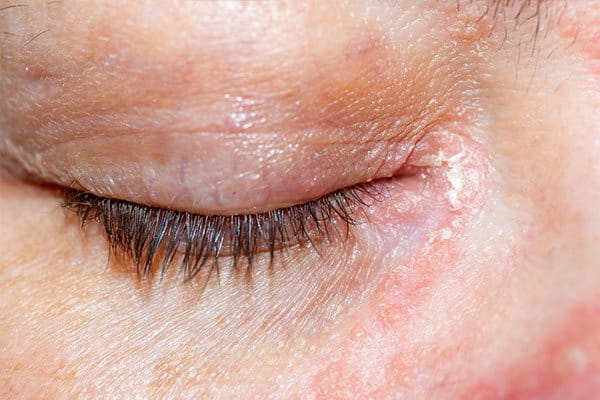
There are several skin conditions can lead to dry skin around the eyes, including xerosis, contact dermatitis, atopic dermatitis, blepharitis, and rosacea, the severity and treatment depend on the specific condition.
- Atopic dermatitis: Atopic dermatitis, also known as eczema, is a long-term skin condition that causes dry, itchy, and often red skin. It can be painful, and the skin may become chapped and cracked. Both children and adults can be affected. Areas of the body that are more exposed to the environment, like the face and hands, are more likely to develop atopic dermatitis. When it affects the eyes, it could be due to facial eczema or contact dermatitis.
- Xerosis: Xerosis is a condition that causes dry, rough, and flaky skin due to a lack of moisture. It can affect the skin under the eyes, making it feel tight, itchy, and irritated.
- Metabolic conditions: Metabolic conditions such as diabetes mellitus and kidney diseases can also increase the risk of dry skin on the eyelids and under eyes developing.
If you are worried about the dry skin around your eyes or the symptoms are becoming worse, it is recommended to consult to your doctor or dermatologist for a face-to-face diagnosis.
Skincare factors that affect skin hydration
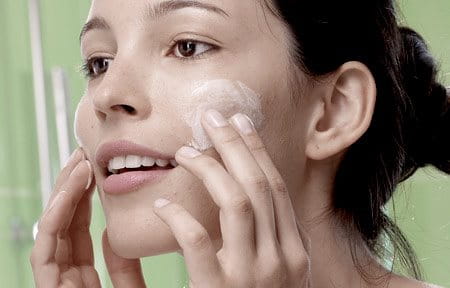
-
Washing too much. Frequently washing your face can dry out the skin, removing the lipids which make up the skin barrier. This can cause the skin to become dehydrated, dry and itchy.
-
Inadequate skincare routine. Because the skin around our eyes is delicate, it is important to use tailored products which have been dermatologically tested to treat dry skin. Unsuitable skincare products can strip away the skin’s natural lipids and worsen dryness symptoms. Read our recommended skincare routine for dry skin.
Hay fever
Hay fever is an allergic reaction to pollen that can cause symptoms like an itchy throat, mouth, nose, and ears, along with sneezing, coughing, and itchy, red, or watery eyes. These symptoms usually worsen between March and September, especially when it's warm, humid, and windy.
The constant eye watering and itching can lead to dry, irritated skin around the eyes due to frequent rubbing or scratching. Hay fever can also cause skin rashes and conditions like eczema. People with eczema are more likely to have hay fever, and hay fever can trigger or worsen eczema symptoms.
Why is the skin around eyes prone to dryness?
Facial skin is much thinner and sensitive when compared to other areas of the body, but the skin around the eyes is even more delicate. While the epidermis (the external layers of skin) is normally about 0.1mm thick, around the eyes it ranges from 0-0.5mm thick. This makes the skin around our eyes particularly susceptible to drying out and to irritation.
The skin on our eyelids and under our eyes is very vascular, meaning that a lot of blood flows through the vessels around the eyes. Therefore, the skin is more likely to become irritated or affected by dry skin conditions than other areas of the body. Because of this, the skin around our eyes needs appropriate care as once the skin becomes dry and irritated the symptoms can quickly become worse, especially if the area becomes damaged through scratching or rubbing.
How to relieve dry skin around eyes
Dry skin is the result of a breakdown in the skin’s barrier function, causing the skin to lose moisture which impairs its water-binding capacity.
1. Cleansing dry skin around eyes
Due to the delicate nature of the skin around the eyes, it is essential to use gentle eye makeup removers and cleansers to prevent irritation. Choose facial cleansers that are free from colourants and perfumes, as these ingredients can potentially irritate sensitive skin. It is advisable to use products that have been dermatologically tested on dry skin.
The Eucerin DermatoClean 3-in-1 Micellar Cleansing Fluid is a mild facial cleanser designed for sensitive skin, effectively removing even water-resistant makeup. It features three moisturising ingredients: APG Complex for gentle cleansing, Gluco-Glycerol for hydration and conditioning, and Hyaluronic Acid to retain moisture, leaving the skin plump and hydrated.
Additionally, avoid applying cosmetic products containing fragrances and preservatives to the eye area, as these may exacerbate dryness and irritation.
2. Moisturising dry skin around eyes
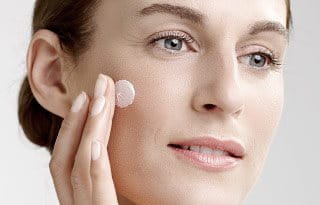
As the skin around the eyes is thinner and more delicate than the rest of the face, it is important to use moisturisers which restore the skin’s moisture balance but are also gentle enough to be used on the eye area. Moisturisers which contain ingredients such as Urea and Lactate bind moisture into the upper layers of the skin (the stratum corneum), helping to keep the skin hydrated and soft.
For mild dry skin, a 5% Urea concentration in a cream or lotion is typically sufficient to alleviate dryness, including around the eyes. For more severe dryness, a higher concentration of Urea may be required. The Eucerin UreaRepair Replenishing Face Cream 5% Urea and the Eucerin UreaRepair ORIGINAL 10% Urea Cream are suitable for use on both the face and the eye area and can be incorporated into a regular skincare routine to address dry and extremely dry skin around the eyes.
Eucerin Hyaluron-Filler Eye Cream SPF 15 is an excellent eye cream that contains Hyaluronic Acid, Glycine Saponin, and Enoxolone. It is ophthalmologically tested to visibly reduce fine lines and wrinkles, providing smoother, more radiant, and youthful-looking skin.
Important: Eucerin UreaRepair and Hyaluron-Filler products are not suitable for use inside the eyes or on the eyelashes.
3. Protect dry skin from sun exposure

To protect dry skin around the eyes from sun damage, avoid excessive sun exposure by wearing sunscreen and protective sunglasses. Choose a sunscreen that blocks UV rays and includes moisturising ingredients to keep the skin hydrated. Sunscreens which contain irritating perfumes and colourants should be avoided as these can cause irritation.
Eucerin Sensitive Protect Face Sun Cream SPF50+ designed with COLIPA- and EU-compliant UV filters, as well as antioxidant Licochalcone A to protect your skin against UV-induced skin ageing and pigment spots. Suitable for dry skin.
4. Avoiding contributing factors
In addition to having a good skincare routine, it is best to avoid contributing factors that can worsen dry skin patches around the eyes.
- Avoid dry climates (both hot and cold) by spending less time outside and using a humidifier indoors when indoor heating is on.
- Avoid washing your face with hot water. It is best to use warm water instead to prevent stripping the skin of its natural oils. Washing your face too frequently can also dry out the skin. Pat the skin dry instead of rubbing it.
- Consult your doctor about hay fever treatments such as antihistamines if the dry skin around your eyes is being caused by a reaction to pollen.
- Use cosmetic and skincare products that do not contain perfumes, colourants and parabens to avoid irritating the skin around the eyes.
- Ensure that you drink enough water, especially those who are elderly as they are more prone to dehydration.
- Maintain a healthy diet, including vegetables, fruits and antioxidant-rich foods. Avoid processed foods, fizzy drinks and refined carbohydrates.
- Avoid standing or sitting close to heat sources like heaters or fireplaces.
- Avoid touching or rubbing your eyes. Excessively touching, rubbing or scratching the skin around your eyes can worsen dryness symptoms and damage the skin. To prevent scratching and soothe itchiness, you can apply cool compresses to your eyelids and under your eyes.
Our brand values

We deliver a holistic dermo-cosmetic approach to protect your skin, keep it healthy and radiant.

For over 100 years, we have dedicated ourselves to researching and innovating in the field of skin science. We believe in creating active ingredients and soothing formulas with high tolerability that work to help you live your life better each day.

We work together with leading dermatologist and pharmacist partners around the world to create innovative and effective skincare products they can trust and recommend.
